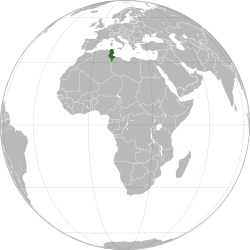Tunisia: Government Denies Existence Of Jihadists Training Camps
By Magharebia
By Houda Trabelsi
The Tunisian interior ministry last week dismissed news reports of jihadist training camps in the country.
“The internal security forces, in co-operation with the army, are on high alert to protect the integrity of Tunisia’s borders and maintain the country’s security and stability,” the interior ministry said in an October 30th statement denying the reports.

A week earlier, French news magazine Marianne published a story claiming that Islamists were “training both in the north and the south of Tunisia in preparation for holy war and readying themselves to go to Syria and Mali”.
“Two [jihadist camps] at least are known: one in the north, in the region of Tabarka, and the other in the south, bordering the three borders to Tunisia, Libya and Algeria, not far from the Libyan oasis of Ghadames,” the French publication stated.
The journal also quoted a European diplomat as saying Tunisia was warned of the camps’ existence but did not respond.
According to Marianne, Algeria is particularly concerned about the jihadist threat in Tunisia. The journal cited the recent breakup of a jihadist network in Annaba with Tunisian origins, as well as the discovery of Libyan surface to air missiles in Tebessa that allegedly passed through Tunisia.
French newspaper Le Monde also published an investigative report on the issue of Tunisian extremists, suggesting that it was threatening security and stability and shifting Tunisia’s status to that of a safe haven for salafist jihadists. The French TV channel Canal+ broadcast last week a documentary in which it referred to the growing jihadist movement in Tunisia.
Bassel Torjemen, an expert on salafist groups, told Magharebia that the Tunisian interior ministry’s denial was not convincing Europeans.
“The frequency of events carried out in Tunisia by a group considered by Western standards to be terrorist, and the inability of the security forces to address these events, as well as their transition to the role of defence and self-protection against attacks, reflects badly on the image of the security services, both locally and internationally,” Torjemen said.
Torjemen added: “The success of these groups known as terrorists in the transition to attacking security posts reflects the grave inability of the Minister of Interior to make the decision to confront them.”
The expert attributed the failure to act on the threats to Ennahda’s view that salafists could be contained with dialogue. “They also fear the transition of some salafist groups to military action. Such a transition is frightening for the Minister of Interior who does not want to be held responsible for a switch of this magnitude,” he added.
“The risk today is very high and the possibility that these groups have training camps or the potential to train their members in terrorist operations may be beyond the capacity of the Ministry of Interior to follow up. In fact, the security services have moved from controlling and managing the situation to preventing strikes and reacting minimally to defend themselves.”
However, authorities have taken measures to act against jihadists related to the attack on the US consulate in Benghazi. Two Tunisian nationals were extradited from Turkey, accused of involvement in the attack. Prosecutors moved forward with charges against one of the suspects in October.
